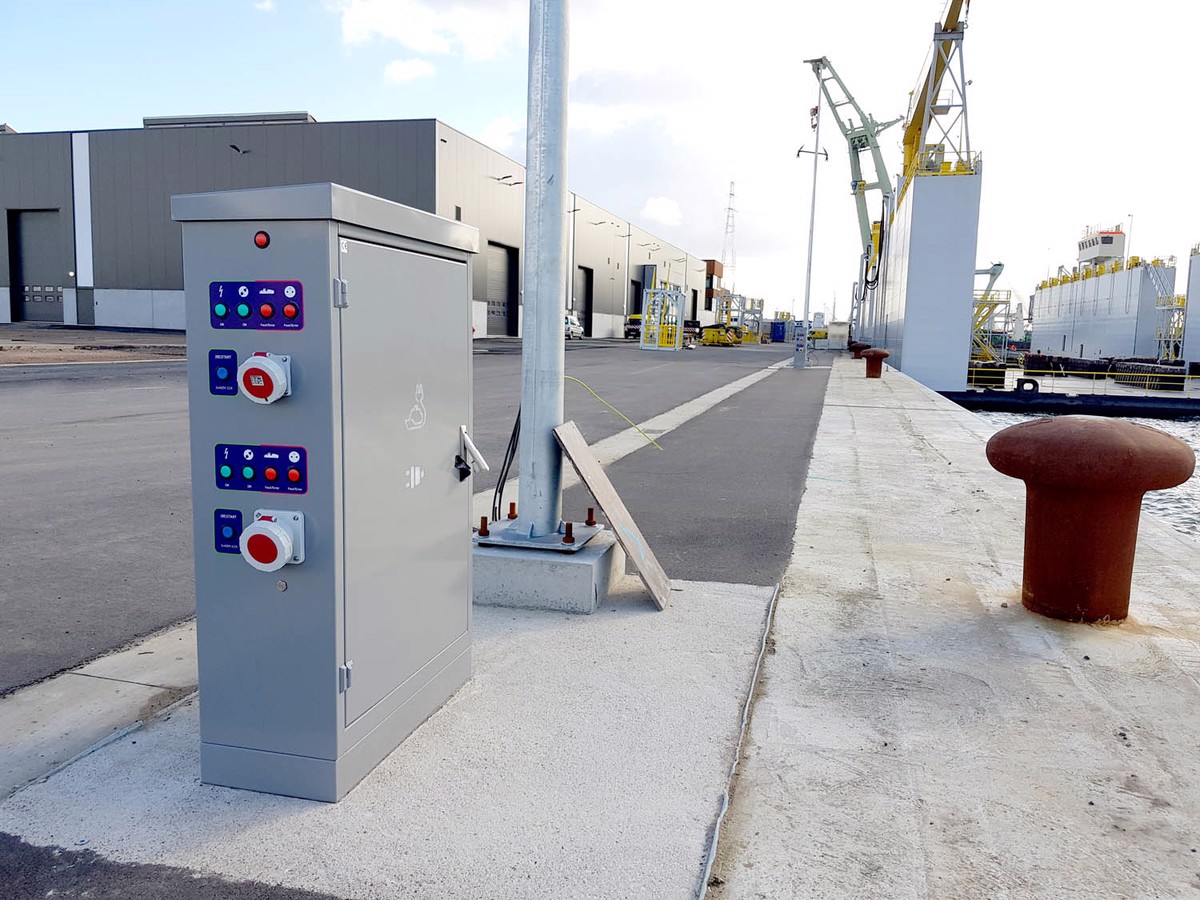European ports laud clear framework on onshore power supply
The EU's revised Alternative Fuel Infrastructure regulation will ensure that inland ports offer onshore power supply (OPS) while giving them flexibility in how to do so, said the European Federation of Inland Ports (EFIP).
 PHOTO: Shore power cabinets in the Port of Antwerp. P&V Panels
PHOTO: Shore power cabinets in the Port of Antwerp. P&V Panels
The European Parliament and Council of Europe reached a provisional agreement on the amended Alternative Fuel Infrastructure (AFIR) mandate under the EU's “Fit for 55” roadmap. When adopted, the regulation will require all inland ports connected to the Trans-European Transport Network (TEN-T) to have shoreside electricity infrastructure by 2030.
EFIP stressed that "continued funding" is critical to implement the regulations effectively across all European ports. EFIP is a non-profit representing 200 inland ports in 18 EU countries and Switzerland, Serbia and Ukraine. Its members include ports of Antwerp and Brussels.
According to EFIP, the provisional agreement “supports inland ports by having Member States ensure that their electricity grid and network both has the capacity and reach for inland ports to deploy the OPS infrastructure.” It argued, however, that a lack of grid capacity could hold back more shore power infrastructure from being rolled out.
The European Parliament and Council have also agreed to review the bill in 2026. EFIP said the review will provide information about alternative fuel infrastructure in Europe, especially for battery and hydrogen fuel cell navigation.
The bill will now need formal approval from the European Council and Parliament before it can be adopted as a regulation in Europe.
By Konica Bhatt
Please get in touch with comments or additional info to news@engine.online





